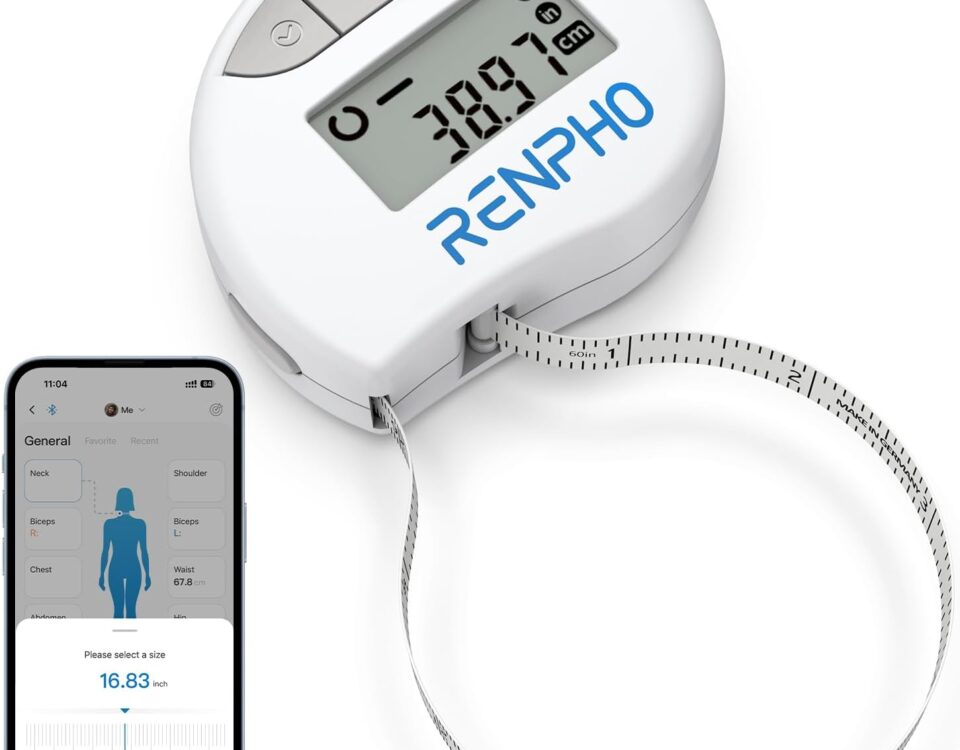
Smart Bluetooth Body Scale by Etekcity

The Ultimate Guide to Locksmith Services, Costs, and Training in the UK
Healthcare & Benefits in the UK: Answering Your Top Questions
Understanding healthcare, benefits, and mental health resources can be overwhelming, especially with so much information available. This blog post addresses the most searched healthcare-related questions, offering clarity on some of the most pressing concerns in the UK today. Whether you’re looking for information on chronic conditions, mental health benefits, or details about the NHS, this article has you covered.
What is the biggest issue in healthcare today?
The biggest challenge in healthcare today is undoubtedly the lack of accessible, timely, and affordable care. With the rising demand for healthcare services, particularly in the wake of the COVID-19 pandemic, healthcare systems worldwide face issues such as staff shortages, long waiting times, and the challenge of funding advanced treatments.
In the UK, the NHS faces growing concerns about sustainability, with limited resources and an ageing population adding strain to the system. Key challenges include:
- Workforce Shortages: The NHS currently has significant vacancies across various healthcare roles, including doctors, nurses, and specialists. These shortages can result in delayed treatments and stretched resources.
- Healthcare Inequality: Socioeconomic disparities mean that some groups have less access to quality care, particularly those in low-income or rural areas.
- Rising Costs: Advanced medical treatments and technologies are costly, putting pressure on NHS budgets and sometimes limiting access to cutting-edge care for patients.
Efforts to address these issues include funding initiatives, recruitment drives for healthcare staff, and exploring telemedicine to improve access to care. However, the complexity of healthcare needs and limited budgets means this remains a challenging landscape.
What to do when your health is failing?
If you feel your health is declining, it’s essential to take action promptly. Here are steps to consider:
- Consult Your GP: Start by scheduling an appointment with your General Practitioner (GP) to discuss symptoms and undergo necessary tests. A GP can help diagnose issues and recommend specialists if needed.
- Implement Healthy Lifestyle Changes: Diet, exercise, and adequate sleep are foundational to maintaining and improving health. Minimising stress through practices such as meditation and mindfulness can also positively impact overall well-being.
- Seek Support Networks: Joining support groups, whether in person or online, can provide emotional support and practical advice from others facing similar issues. Many organisations, including the NHS, offer resources for chronic illnesses, mental health, and recovery.
By addressing issues early and staying proactive, you can take control of your health and make informed choices for your well-being.
What are the chronic health conditions?
Chronic health conditions are long-lasting illnesses that often require ongoing management. Common chronic conditions include:
- Diabetes: Affects blood sugar levels, often requiring insulin or medication.
- Hypertension: Known as high blood pressure, which can lead to severe complications if untreated.
- Asthma: A respiratory condition that can cause breathing difficulties.
- Heart Disease: Conditions affecting the heart, including coronary artery disease and heart failure.
Chronic conditions often need routine medical oversight, lifestyle adjustments, and sometimes medication. The NHS offers resources to manage chronic diseases, providing guidelines, support programs, and therapies for effective management.
How does the NHS define health?
The NHS adopts the World Health Organization (WHO) definition of health, viewing it as “a state of complete physical, mental, and social well-being and not merely the absence of disease or infirmity.”
This broad perspective means the NHS focuses not only on treating illnesses but also on preventive measures, mental health services, and public health initiatives aimed at improving overall quality of life for all citizens in the UK.
What is health in one word answer?
In one word, health can be defined as “wellness”. This single term encompasses physical, mental, and social well-being, embodying a holistic approach to health that goes beyond mere absence of disease.
What are health benefits?
Health benefits are advantages and support services that contribute to well-being and quality of life. In the UK, common health benefits include access to the NHS for free medical care, prescription subsidies, mental health services, and immunisations. Many employers also offer health benefits such as private healthcare, wellness programs, and mental health resources.
What benefits can you claim?
In the UK, there are various benefits available to support individuals facing financial difficulties or specific health needs. These include:
- Universal Credit: A monthly payment for individuals with low income or unemployed.
- Personal Independence Payment (PIP): Available for people who need help with daily activities or mobility due to a health condition.
- Employment and Support Allowance (ESA): For those unable to work due to a medical condition.
Each benefit has eligibility criteria and requires specific documentation. The government website provides detailed information on how to apply and claim each benefit.
What items can I purchase with my Healthy Benefits Plus card?
The Healthy Benefits Plus card allows eligible individuals to purchase items that contribute to health and wellness. These often include:
- Over-the-counter medications
- Health and wellness products, such as vitamins and first-aid supplies
- Healthy food items, depending on the program guidelines
It’s best to check the card’s guidelines or contact customer service to get a full list of approved items.
What benefits can I claim with health issues?
If you’re experiencing health issues, several benefits are available to help you manage financial pressures, including:
- Personal Independence Payment (PIP)
- Employment and Support Allowance (ESA)
- Universal Credit
These benefits are designed to support individuals who are unable to work or require financial assistance due to health conditions.
Can I claim benefits for mental health UK?
Yes, individuals suffering from mental health conditions can claim benefits in the UK. Personal Independence Payment (PIP) and Employment and Support Allowance (ESA) are specifically tailored to support individuals with mental health issues that affect daily activities or work capability.
How do I prove my mental health for PIP?
When applying for PIP, you’ll need to provide evidence of your mental health condition. This could include:
- Medical reports from a GP or psychiatrist
- Documentation of prescriptions or mental health treatments
- Statements from family members or carers explaining how your mental health affects daily life
Gathering comprehensive evidence can strengthen your claim, demonstrating the extent to which your mental health impacts daily activities.
How much can you claim for mental health?
The amount you receive depends on the severity of your condition and your assessment. PIP has two components: the daily living component (up to £92.40 per week) and the mobility component (up to £64.50 per week). Your assessment will determine your entitlement to one or both components, and at different rates.
What mental illness qualifies for PIP?
Several mental health conditions can qualify for Personal Independence Payment (PIP) in the UK, as long as they significantly impact daily living or mobility. Conditions that may qualify include:
- Anxiety disorders, including general anxiety and social anxiety
- Depression and major depressive disorder
- Post-traumatic stress disorder (PTSD)
- Bipolar disorder
- Schizophrenia and other psychotic disorders
To receive PIP for mental health, applicants need to demonstrate how their condition affects their ability to perform routine activities. An assessment will determine eligibility and the rate at which benefits are paid, which could range from the standard to the enhanced rate.
Can you get benefits for depression and anxiety in the UK?
Yes, depression and anxiety are recognized conditions for benefits like PIP or ESA in the UK. The applicant must show that their condition significantly affects daily activities or work capabilities. These benefits provide financial support, helping individuals manage the additional challenges that come with mental health conditions.
Can I get PIP for anxiety and depression?
If anxiety and depression are impacting your daily life, you may be eligible for PIP. The key factor is demonstrating how these conditions affect your ability to perform tasks, manage your mobility, or complete daily activities. Documentation from healthcare providers and a thorough assessment by the Department for Work and Pensions (DWP) are required.
How much money do you get for depression in the UK?
The amount you may receive for depression through PIP depends on the severity and assessed impact of your condition. PIP consists of two components: the daily living component and the mobility component. Depending on the assessment outcome, claimants may receive up to £92.40 per week for the daily living component and £64.50 per week for the mobility component.
What can I claim if I’m depressed?
If you’re experiencing depression, you may be eligible for multiple benefits to assist with daily expenses and support needs:
- Personal Independence Payment (PIP): Provides financial aid for those with difficulty performing daily tasks.
- Employment and Support Allowance (ESA): For individuals who cannot work due to their condition.
- Universal Credit: Includes additional elements to support mental health needs.
These benefits can alleviate the financial burden associated with mental health struggles, allowing individuals to focus on recovery and management.
What benefits can I claim for depression and anxiety?
If depression and anxiety are affecting your ability to function, you may qualify for benefits such as:
- PIP: To assist with day-to-day activities and mobility challenges.
- ESA: For those who cannot work due to their mental health condition.
- Universal Credit: Includes additional elements for mental health-related support.
Eligibility and payment amounts depend on assessments and evidence submitted during the application process.
How to claim mental health benefits in the UK
Claiming mental health benefits in the UK typically involves:
- Application: Start by applying online, by phone, or via form for the chosen benefit (e.g., PIP, ESA).
- Documentation: Submit evidence such as medical records, prescriptions, and statements from healthcare providers.
- Assessment: Attend an assessment where a healthcare professional evaluates your needs and limitations.
Ensuring you have comprehensive documentation and preparing for the assessment can help increase the chances of a successful claim.
Benefits for anxiety in the UK
Anxiety disorders may qualify for benefits like PIP or ESA if they severely impact your daily life or work ability. Documentation of your diagnosis, treatment plans, and how the condition affects your daily activities will be required to support your claim. These benefits can offer financial relief, allowing you to focus on treatment and recovery.
Can I claim benefits if I leave my job due to depression in the UK?
Yes, if depression affects your ability to work, you may be eligible for benefits such as ESA or Universal Credit. It’s essential to provide medical documentation confirming that your depression impacts your work capabilities. The DWP may ask for supporting evidence from your GP or psychiatrist to verify your condition.
Universal Credit mental illness payment
Universal Credit offers additional support for individuals with mental illnesses, including a work capability assessment that can entitle you to higher payments. If deemed unable to work, you may receive an additional element in your Universal Credit, providing extra financial support as you manage your condition.
Can’t work due to anxiety in the UK
If anxiety makes it impossible to work, benefits like ESA and Universal Credit can provide financial assistance. To qualify, you must complete a work capability assessment and provide medical evidence confirming how anxiety affects your daily activities and ability to maintain employment.
Universal Credit depression and anxiety
Universal Credit can offer additional financial support for those unable to work due to depression or anxiety. Through the work capability assessment, individuals can receive higher payments if their mental health condition prevents them from working. This extra support aims to alleviate financial strain during periods of mental health recovery.
What benefits can I claim for PTSD in the UK?
Post-Traumatic Stress Disorder (PTSD) can make daily activities challenging and affect work capacity. Eligible individuals may claim benefits like PIP, ESA, or Universal Credit, depending on the severity and impact of their PTSD. Medical documentation and a detailed assessment of your condition will be necessary to determine eligibility.




